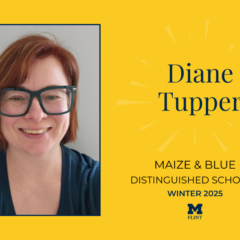Interdisciplinary research team at UM-Flint instrumental in Global Flint Initiative

In March 2024, the International Center of Global Flint launched the Global Flint Initiative, a community development strategy designed to make the city a more welcoming and supportive place for immigrants, thereby fostering a more vibrant and multicultural community. The first step in that process? Research.
A team from the University of Michigan-Flint stepped up to support that vital work — Emily Feuerherm, associate professor of linguistics; Jennifer Alvey, associate professor of anthropology, and Sasha Drummond-Lewis, associate professor of sociology.
"I am the president of ICGF's board of directors, and I had previously worked on similar research with Phyllis Sykes, the organization's executive director," said Feuerherm. "When she shared the need for support in surveying the local immigrant communities, I mentioned the opportunity to Jennifer, who brought in Sasha because of her expertise in this kind of research, and we have been collaborating since then with Phyllis and ICGF's program director, Adil Mohammed."
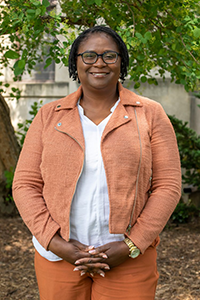
The process began with a community meeting to identify broad categories of needs, challenges and opportunities. With that, the team drafted several survey questions before meeting with various organizations within the community that provide services and resources to immigrants, ensuring that the survey collected the kind of actionable data they needed.
"After those meetings, the survey grew to 100 questions and we became nervous that it had become way too long. After several months of refining, we pitched it back to the community partners to confirm that the length was reasonable and we were collecting the information they needed," Drummond-Lewis said. "The response we received was very positive because of how comprehensive the survey is and the fact that, to their knowledge, nothing like it has existed before. They were enthusiastic and confident that the information was going to help them expand their services and programming in ways they hadn't been able to do before."
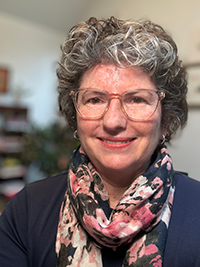
"When we address challenges and barriers for one group using a universal design perspective, we find that, quite often, the solutions positively impact everyone in the community," said Alvey. "Something like regional transportation in our area is a huge barrier for the immigrant communities that we're surveying, but implementing a solution would benefit everyone in the area. When we create a more welcoming community for those migrating here, it becomes more welcoming to all of us."
Over the next several months, the team attended community events throughout Genesee County and surveyed immigrants and international students to gain a deeper understanding of their lives in the area. They released the data and issued a preliminary report on this phase of the research in June, but from the research team's perspective, this is only the beginning.
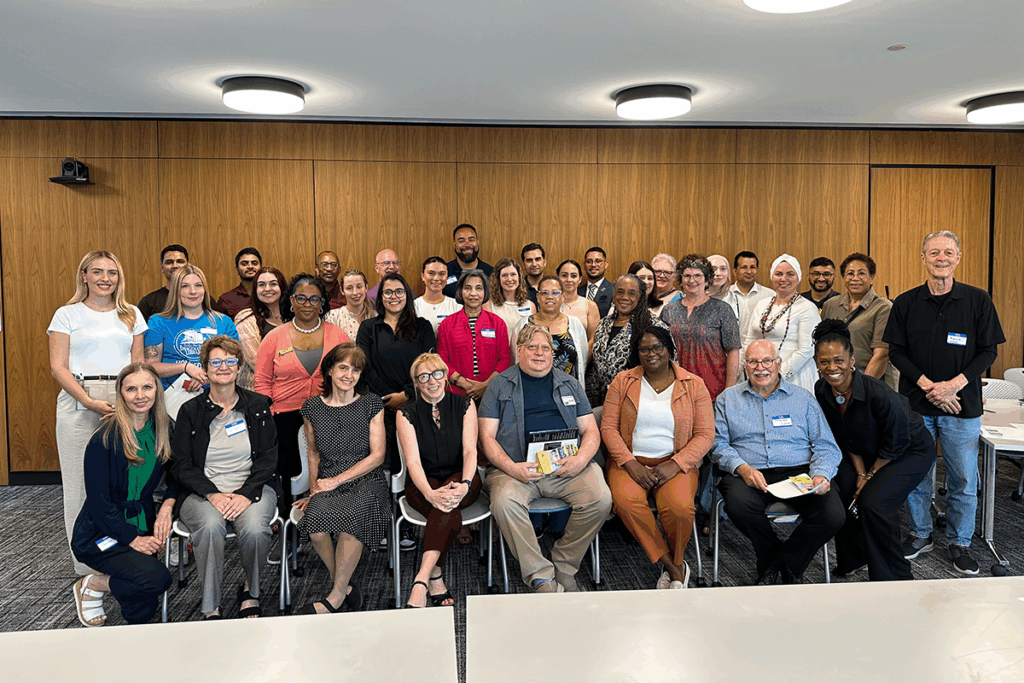
"There are so many insights yet to be gleaned from the survey data, but all of these surveys were completed before the major federal changes regarding immigration policy, so we want to dive more deeply into those experiences and understand how contemporary events are impacting this community," said Alvey.
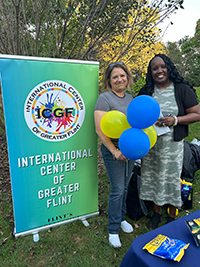
In addition to providing valuable information to the community, the research project has offered numerous opportunities for UM-Flint students to gain practical experience in research, data analysis and community engagement. "We had two student researchers, an undergrad, Elsa Butterfield, and a graduate student, RoShawndra Opara, who were instrumental in the in-person survey process," said Drummond-Lewis. "Not only did they administer surveys, but they were also exceptional at connecting with people in the community and welcoming them in a manner that made them feel comfortable participating in this research. They really helped survey participants with tech issues and guided them through confusing questions, and we could not have done this work without them."
The team continues to analyze the survey data and is currently conducting focus group sessions to dig deeper and learn more about immigrant experiences in Genesee County. The team is working with four new students this summer and envisions that UM-Flint student researchers will remain a core aspect of the project going forward. They plan to have students continue to assist with the focus group research, further data analysis, and work on reports for the community that bring the project's broader picture into focus.
Feuerherm has integrated aspects of GFI's goals into her course curriculum. "As part of my Language and Law course, we interviewed the executive directors of the Latinx Center and the Arab American Heritage Council about how UM-Flint can better address the needs of multilingual community members who want to access higher education," Feuerherm said. "My students then compiled the research and developed a list of recommendations that they shared back with the community at an event hosted by the Latinx Center and attended by UM-Flint, Mott Community College and ICGF. The students loved the experience and found it transformative, especially in terms of learning different research methods, conducting hands-on research, and building community relationships."
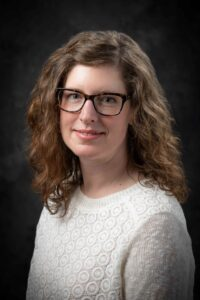
Feuerherm also integrated the GFI research into her Second Language Acquisition course. "I had students make videos to support English learners, with topics based on what we had learned from the survey and our partners," she said. "There were a lot of concerns and needs around education, so several of these videos focus on providing a resource to help immigrant families better navigate higher education in the local community."
During the fall 2025 semester, Feuerherm's ESL Citizenship course will incorporate the GFI's data into the class project. "The students will develop a class that guides immigrants in navigating and understanding the process for gaining U.S. citizenship, including the civics and English tests. Then they'll work with community groups to deliver the course," she said.
The group's research has already attracted the interest of the Office of Global Michigan, the Ruth Mott Foundation, and others in ICGF's larger network, as the comprehensive data can help them develop new policy, understand how to focus their resources, and prioritize programming that will have the highest impact on the community.
"We're by no means finished. I feel like we're just getting started," said Drummond-Lewis. "This initial survey serves as the baseline, and we hope to conduct it every three to five years, so that we can track long-term data as well as how any programs or interventions put in place impact the immigrant experience."
"I think, for all of us, the experience of building community in the context of learning both individually and collectively has been the most profound aspect of this experience," said Feuerherm. "As an interdisciplinary team, I've enjoyed building stronger relationships with other faculty at UM-Flint, as well as deepening my local connections. This experience has ripple effects in the community, and it's very inspirational to us coming together to help build a better Flint."
Kat Oak
Kat Oak is the communications specialist for the College of Arts, Sciences, and Education. She can be reached via email at katheroa@umich.edu.
